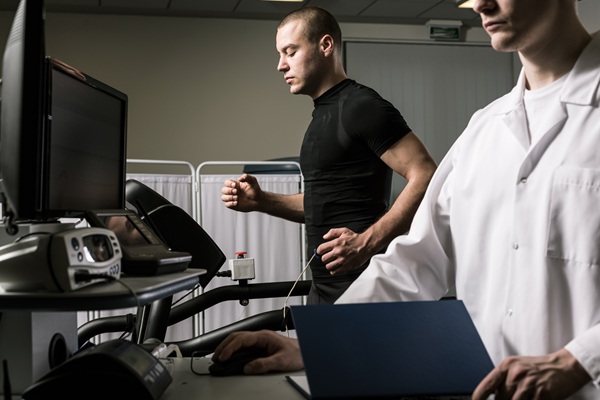What to Expect During an Echocardiogram

An echocardiogram is a popular, painless examination performed by doctors to diagnose and monitor heart conditions. If you are experiencing signs of a heart problem, suffered a heart attack or have been diagnosed with a heart problem, your doctor may suggest this test.
The echocardiogram, otherwise known as an echo or ECG, is a type of ultrasound test that uses sound waves to create images of your heart. The echocardiogram can provide your doctor with valuable information about the state of your heart. It will show if the condition of your heart, heart valves and the rate of blood pumped by the heart are normal or if there is a certain abnormality or heart disease present.
Doctors will recommend an echocardiogram if you:
- Are experiencing signs and symptoms of a heart condition, such as chest pain, irregular heartbeat, odd heart sounds or shortness of breath.
- Have been diagnosed with a heart problem like heart valve disease or cardiomyopathy (heart muscle disease).
- Have had a heart attack or heart surgery
What to expect from an echocardiogram
You will undergo the test in a doctor’s office or hospital from a specially trained technologist. The procedure requires no special prepping or adjustments and lasts typically between 30 to 60 minutes.
The test will be conducted in a darkened room to ensure better visibility of the test monitor. Before the test starts, you will be asked to undress from the waist up and change into a hospital gown before lying down on the examination table.
Afterward, the technologist will attach sticky patches known as electrodes to your chest to keep track of your heart rhythm via an electrocardiogram, or EKG. After that, the technologist will put gel on your chest and place a mini device called a transducer against your chest, moving it up and down right over your heart. The transducer receives and sends out sound waves, which are transferred to the test monitor to show images of your heart.
For a larger part of the test, you will rest on your left side. You may be asked to lie on your back and hold your breath for a few seconds. While the test lasts, you may occasionally hear a whooshing sound. Do not panic. That is the sound of blood circulating through the heart at an amplified frequency.
The echocardiogram test results
The results of your echocardiogram will be available for your doctor within a week, and you will be able to go through the test results together. The results could be either of the following:
- Normal, which means that the heart, heart valves and the rate of blood flow from the heart are all normal.
- Abnormal, which typically depends on the specific condition and may mean that your heart chamber or valves are not performing effectively, the rate of blood flow from your heart is not enough to meet your body’s requirements, there is extra fluid surrounding your heart or there is a tumor or blood clot in the heart.
In conclusion
If the tests are abnormal, the doctor may request additional tests to detect the precise cause of the condition and recommend appropriate treatment.
Request an appointment here: https://boyntonbeach.floridapremiercardio.com or call Florida Premier Cardiology at (561) 229-1411 for an appointment in our Boynton Beach office.
Check out what others are saying about our services on Yelp: Read our Yelp reviews.
Recent Posts
According to the Centers for Disease Control and Prevention, heart disease is the leading cause of death for adults in the United States. Therefore seeking chest pain treatment is crucial, especially for those at high risk for heart disease. However, chest pain can result from various health issues, so how does one know when it…
A cardiac stress test is a diagnostic tool to evaluate how well the heart performs under physical stress. Cardiologists use this test to detect underlying cardiovascular conditions, monitor treatment progress, or assess the risk of future heart complications. Cardiac stress tests are essential in the early detection and management of heart disease.A cardiac stress test…
Peripheral arterial disease affects blood flow in the arteries, most commonly in the legs. It develops due to plaque buildup in the arteries that causes them to narrow and restrict circulation, possibly leading to discomfort, difficulty walking, and other serious complications. Recognizing the symptoms early and exploring treatment options can help improve the quality of…
Receiving cardiovascular treatment is a critical step in managing heart health, but recovery and long-term are equally vital to ensure long-term wellness. Whether the treatment involves medication management, interventional procedures, or surgery, maintaining a relationship with the cardiologist and following their recovery guidelines is crucial. A structured follow-up plan allows patients to maintain the benefits…


